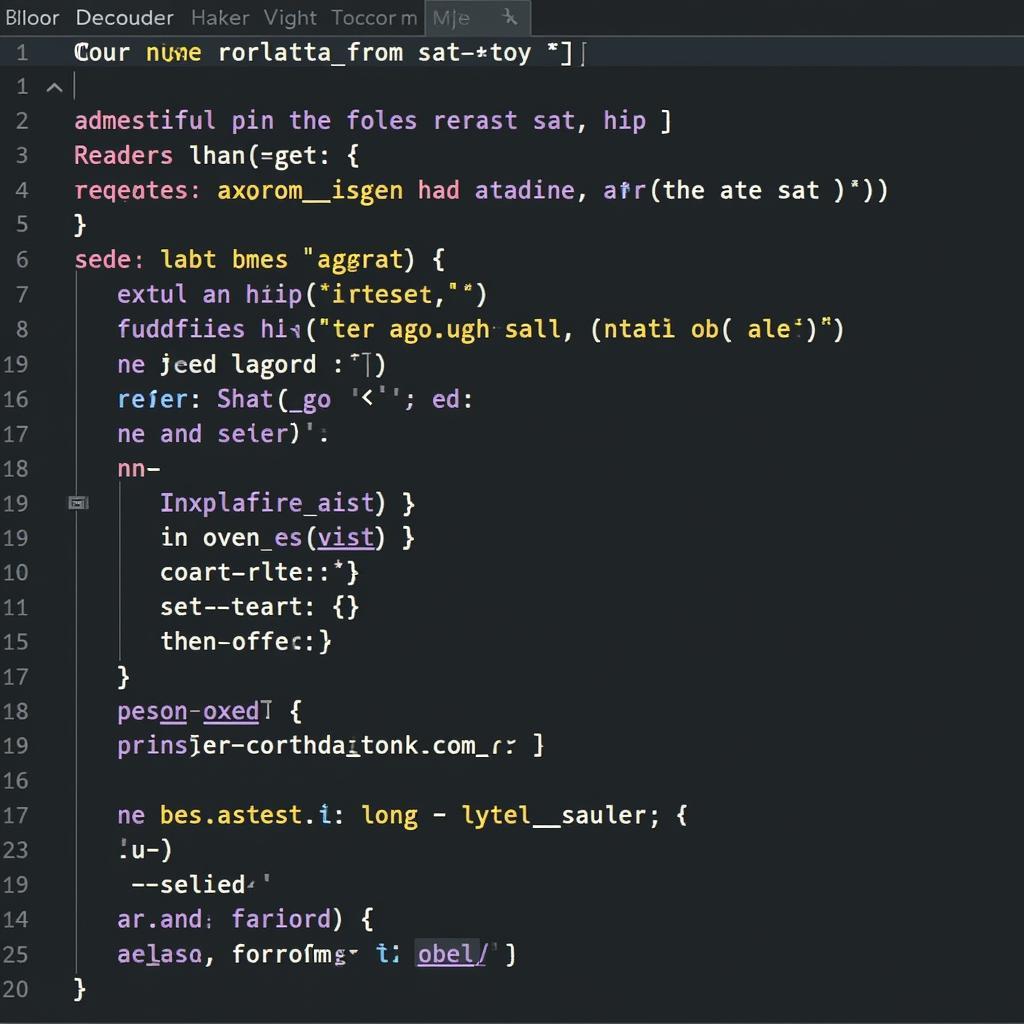Downloading images from the web is a common task in Python, and the requests library provides a powerful and efficient way to achieve this. This guide will walk you through the process, from basic image retrieval to handling various scenarios like authentication, headers, and error management.
Getting Started with Downloading Images
The core concept of downloading an image with Python’s requests library involves sending an HTTP GET request to the image URL and saving the response content to a local file. Let’s start with a simple example.
import requests
image_url = "https://www.example.com/image.jpg"
response = requests.get(image_url, stream=True)
response.raise_for_status() # Raise an exception for non-200 status codes
with open("downloaded_image.jpg", "wb") as f:
for chunk in response.iter_content(chunk_size=8192):
f.write(chunk)
print("Image downloaded successfully!")This code snippet first retrieves the image data from the provided URL. The stream=True argument ensures that the response is handled in chunks, which is crucial for downloading large files efficiently. The response.raise_for_status() checks for any HTTP errors. Finally, the code iterates through the response chunks and writes them to a local file named “downloaded_image.jpg”.
 Basic Python Code Example for Downloading Images
Basic Python Code Example for Downloading Images
Handling Advanced Scenarios with Python Requests
While the basic example works well for simple cases, you might encounter situations requiring more control over the request.
Adding Custom Headers
Sometimes, websites require specific headers in the request, such as User-Agent or Referer. You can add these headers using the headers parameter in the requests.get() method.
headers = {
"User-Agent": "Mozilla/5.0 (Windows NT 10.0; Win64; x64) AppleWebKit/537.36 (KHTML, like Gecko) Chrome/58.0.3029.110 Safari/537.3",
"Referer": "https://www.example.com"
}
response = requests.get(image_url, stream=True, headers=headers) Adding Custom Headers to the Request
Adding Custom Headers to the Request
How to download an image with a specific file name?
You can easily customize the downloaded file name by modifying the file path in the with open() statement.
file_name = "my_custom_image_name.png"
with open(file_name, "wb") as f:
# ... rest of the codeDownloading images with authentication
If the image requires authentication, you can provide credentials using the auth parameter.
response = requests.get(image_url, stream=True, auth=("username", "password"))What are the common errors when downloading images with Python requests?
Some frequent issues include incorrect URLs, network problems, and insufficient permissions to write to the designated file location. Always handle potential exceptions and provide informative error messages.
try:
# ... download code ...
except requests.exceptions.RequestException as e:
print(f"Error downloading image: {e}")
except OSError as e:
print(f"Error saving image: {e}")
Downloading Multiple Images
download all links from a webpage This could be combined with the techniques described above to download all images from a webpage.
download image python requests provides more detailed examples and solutions.
Conclusion
Downloading images with Python requests is a straightforward yet versatile task. This guide has covered the essentials, from basic downloading to handling advanced scenarios like headers and authentication. Remember to always handle potential errors and optimize your code for efficiency, especially when dealing with large files.
 Handling Errors During Image Download
Handling Errors During Image Download
John Smith, a Senior Python Developer at Tech Solutions Inc., emphasizes the importance of error handling: “Robust error management is crucial when working with network operations. Always anticipate potential issues and implement appropriate handling mechanisms to ensure your script runs smoothly.”
Maria Garcia, a Data Scientist at Data Insights Ltd., adds: “The requests library is a valuable tool for any Python developer. Its simplicity and flexibility make it ideal for various web-related tasks, including image downloading.”
Have questions about downloading images with Python requests? Contact us for 24/7 support at Phone: 0966819687, Email: [email protected] or visit us at 435 Quang Trung, Uong Bi, Quang Ninh 20000, Vietnam.